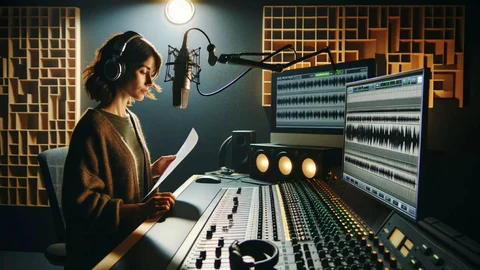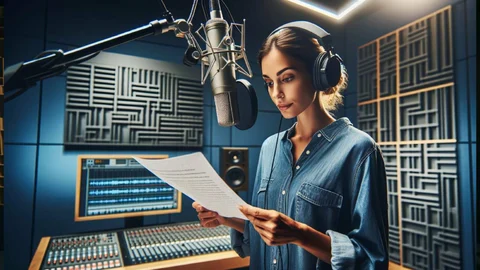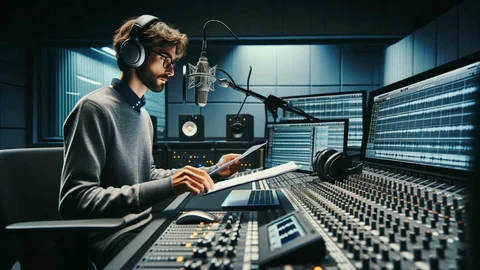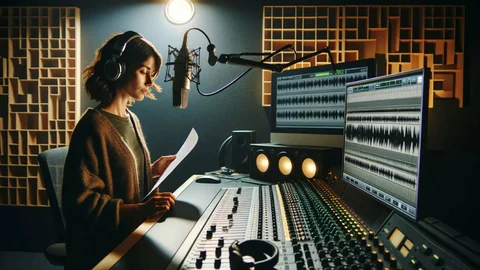In the thick of it instead of just being there to watch it: voice actors are living a nerdy dream. Whether it's anime characters, video game heroes or the voices of their favorite foreign actors – working on films, series or games is a dream for many. But how do you actually become a voice actor?

Becoming a voice actor is a dream job for many. Breathing life into a character is not only an exciting and creative job, but also an opportunity to immortalize yourself a little. But what exactly does a voice actor do and how do you become one?
- You'll find even more jobs right here.
Voice Actors And What They Need To Do
The work of a voice actor is far more than just reading texts in front of a microphone. It requires a profound understanding of the art of storytelling, vocal versatility and the ability to take on a wide variety of roles. Depending on the role and medium, it is also part of the job to match the lip movements of the dubbed character.
Voice actors should also have a technical understanding. Knowing what distance from the mics will give you what effect, and how loud you can get before a mic overdrives and ruins the whole recording, is as much a part of the job as being able to adjust the voice without it sounding like an adjusted voice.

Of course, a certain amount of talent for acting is also required: even if you are not in front of the camera as a voice actor, your voice is an extremely important instrument when it comes to conveying emotions. Accordingly, voice actors must be able to be sad, happy, excited or angry when called upon – and this must be audible accordingly. This can be even more demanding than "classic acting", as you have no influence on the gestures and facial expressions of the dubbed character in the finished scene. And don't even get me started on accents and dialects!
- Second-guessing? Here are some other job opportunities.
How Do You Become A Voice Actor?
The path to becoming a voice actor can be varied and very individual. There is no predetermined path, but certain steps and experiences can make it easier to get started and increase the chances of success:
- Acting classes: There's no harm in taking basic acting classes to work on emotional depth and character variety.
- Voice training: Specialized voice and speech training helps to improve control over the voice, develop different vocal colors and refine pronunciation.
- Networking: Knowing the right people often helps you as a voice actor. Getting involved in the online community is a good start, but attending industry events locally or contacting agencies can also open many doors.

Another thing that always pays off is gaining experience. Asking around for volunteer projects and gaining initial experience in the field of dubbing can be very helpful down the road. For example, there are always hobby game developers looking for people to help with dubbing. What's more, nobody is stopping you from starting your own projects and, for example, simply dubbing older series yourself – even if it's just for fun and practice at the beginning. If you upload them to YouTube or Twitch, your hobby could even help you get a job.
At the same time, you can create your own demo, which means that you have voice recordings of yourself dubbing various characters. You can then send these to the relevant studios to apply for roles.
And that's the crux of the matter: apply! No one will slide into your DMs to hire you for a project if you don't already have a certain presence. You create this through applications and, if in doubt, agencies. However, getting your first role can be quite a lengthy process, so keep at it!
- Not down your alley? Here are some more job opportunities.






























